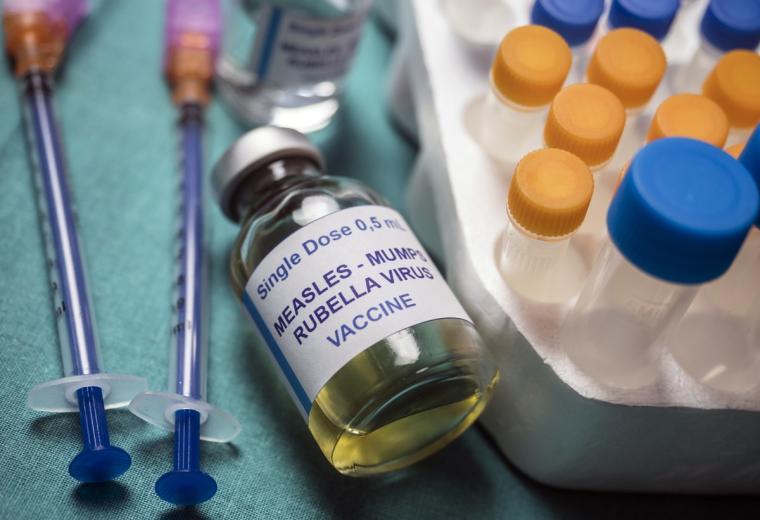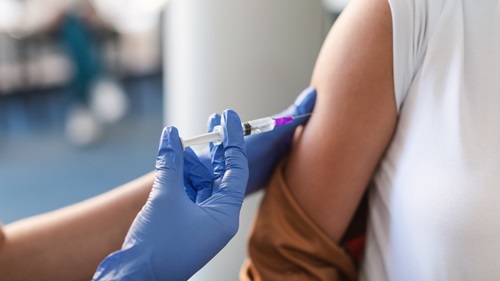
Spring break is on. Easter vacation tournament season is in full swing. Everyone wants to go, to paraphrase Jimmy Buffet, where there ain’t any snow and it’s warm.
There’s just one problem. Florida, one of the top destinations for youth sports, has a measles outbreak, and it’s likely to get worse, as the state's surgeon general has defied federal guidelines by not urging parents to vaccinate their children against the virus or to keep unvaccinated students at home.
CNN notes, “ Florida Surgeon General Dr. Joseph Ladapo wrote in a letter to parents and guardians about the outbreak that it is “normally recommended” for people who have been exposed to measles and who are not vaccinated against the virus or who do not have a history of infection to stay home for up to 21 days, the length of the incubation period for measles. However, his letter leaves that up to choice.”
Politico noted that the outbreak continues to expand. As of last week, health officials in Broward County confirmed a tenth case of the virus, including one in a child under age 5. Two additional cases in children younger than 10 were reported by the Florida Department of Health.
The disease has spread mostly among school-age children whose parents declined to get them vaccinated, citing reasons such as personal freedom, philosophical or religious beliefs, or concerns the MMR vaccine could cause autism (a theory that has been debunked multiple times), authorities said.
And while the outbreak could spur some parents to action in terms of getting vaccines, the offices of many pediatricians are backed up as medical professional try to cope with an uptick of respiratory infections, including RSV.
Measles can be deadly, particularly among young children. And while the disease was initially believed to be extinct in the USA, cases have been creeping back in. According to the CDC, in 2019, 1,274 cases were reported – a figure that had skyrocketed from the year before. In 2020, only 13 cases were reported nationwide, and officials theorized that quarantine and a lack of travel were the deciding factors.
 But by 2021 and 2022, cases were back up, including in states where none had been reported for multiple years running. In 2022, for example, Minnesota experienced 22 cases in the Twin Cities area; that was up from zero the previous year. And in 2023, 58 cases were confirmed. So far this year, 35 cases have been confirmed in states including Arizona, California, Georgia, Indiana, Louisiana, Maryland, Minnesota, Missouri, New Jersey, New York City, Ohio, Pennsylvania, Virginia and Washington – and, of course, Florida.
But by 2021 and 2022, cases were back up, including in states where none had been reported for multiple years running. In 2022, for example, Minnesota experienced 22 cases in the Twin Cities area; that was up from zero the previous year. And in 2023, 58 cases were confirmed. So far this year, 35 cases have been confirmed in states including Arizona, California, Georgia, Indiana, Louisiana, Maryland, Minnesota, Missouri, New Jersey, New York City, Ohio, Pennsylvania, Virginia and Washington – and, of course, Florida.
Measles was thought to have been irradicated by the vaccine; however, there has been an uptick in the anti-vaxxer movement. A list of states specifying the grounds on which parents can object to vaccination can be found here.
As far back as 2015, measles has been a running concern in the youth sports industry. Additional outbreaks, which occurred in 2018 as well as that all-time CDC high in 2019, have occurred, causing sports event owners to weigh the possibility of vaccine requirements among youth participants.
Airports and other transportation centers, unfortunately, serve as petri dishes for infection – and cause additional headaches for planners who know kids and even adult athletes will be passing through them. Back in March of 2018, for example, it was noted that anyone who had visited airports in Memphis, Newark and Detroit could have been exposed to measles after two international travelers were confirmed to have the measles virus.
A 2017 surge in measles cases included outbreaks in 15 of the 53 countries in the European Region, according to the World Health Organization (WHO). That outbreak affected 21,315 people and caused 35 deaths during 2017.
Unlike some viruses, which are more difficult to pass along, measles spreads so readily that without either full vaccination or total quarantine, there is virtually no way to guard against it. Doctors have noted that an infected person (even one who is not displaying symptoms) can have left a room, and several hours later, those who enter the room are still able to be exposed to the disease.
“Measles is the most infectious pathogen in humans that we know of,” NBC News reporters quoted Dr. David Kimberlin, co-director of the division of pediatric infectious diseases at the University of Alabama at Birmingham, as saying. “It’s like a heat-seeking missile. It will find the people who are not immune, and they’re going to get sick.”
CNN’s medical reporters noted, “Measles is a highly contagious disease that can lead to complications and turn deadly, according to the CDC. Symptoms may include fever, cough, runny nose, watery eyes and a rash of red spots. In rare cases, it may lead to pneumonia, encephalitis or death. Measles also can weaken the immune system and may “delete” its immune memory.”
The same article quoted Dr. George Rush, a professor in the Florida State University College of Medicine and director of the university’s Center for Medicine and Public Health, who noted that unvaccinated children should be kept home from school (and by extension, out of other activities that would bring them into contact with other children.
“The CDC recommendations are telling us the right thing to do,” Rust said. “For the parents, keep your kid at home if they’re not immunized, and maybe go get them immunized.”
Experts recommend that children get the measles, mumps and rubella or MMR vaccine in two doses: the first between 12 months and 15 months of age, and a second between 4 and 6 years old. One dose is about 93 percent effective at preventing measles if you come into contact with the virus. Two doses are about 97 percent effective.

